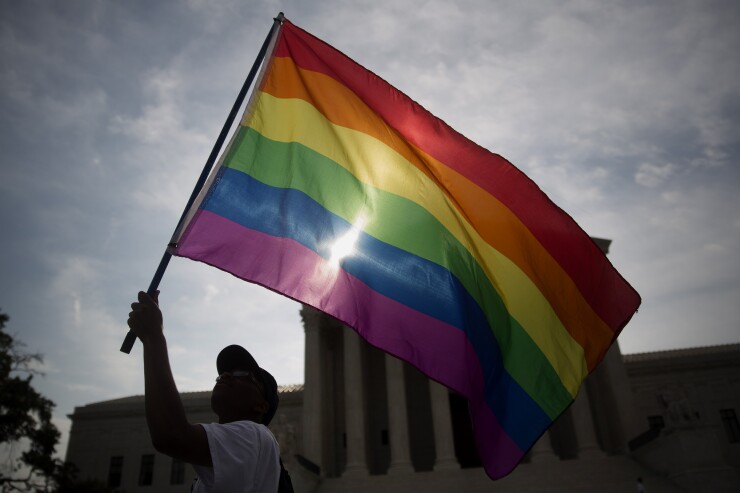Financial planners who advise LGBTQ clients may soon have more support and resources. The FPA is absorbing PridePlanners, a two-decade-old organization of planners which offers education and assistance to members working within this space.
The reason for PridePlanners’ end? Marriage equality.

“The major thrust behind establishing PridePlanners in the late nineties was a compelling need for education and planning strategies for LGBTQ families as they weren’t legally allowed to marry,” says Stuart Armstrong, who previously served on the board of directors for FPA and was treasurer on the PridePlanners board. “With the progression of marriage equality and the Supreme Court rulings in 2015, a lot of the reasons for its existence have been addressed. The need for a standalone organization lessened.”
Armstrong is quick to point out that while marriage equality solved many planning problems for LGBTQ couples and families, hurdles remain. Varying state and local laws regulating everything from worker rights to having or adopting children mean that continuing education about how to help these communities is still imperative.
FPA intends to create a new community for former PridePlanner members as well as interested FPA members, President Frank Paré says. The group will retain a voice on the FPA’s diversity committee and continue educating planners working with LGBTQ families. “They’ll do what they’ve always done essentially, just from within FPA, as opposed to being their own separate entity. It means FPA now has a larger circle of knowledge to draw from and stronger resources for planners working with LGBTQ clients,” says Paré.
FPA does not currently have any events scheduled, but by becoming part of the country’s largest membership association for CFPs, PridePlanners’ mission can reach a wider audience of planners and offer guidance on a more consistent basis, Armstrong says.
The 100-odd members of PridePlanners as well as the roughly 500 individuals on its distribution list who are not currently members of the FPA, can opt to join the association for $200 less than the typical first-year membership dues of $375, plus chapter costs that vary depending on location.
Founded in 1999 by Sharon Rich, Debra Neiman and Sandra Reynolds as a way to address the needs of their LGBTQ clients, PridePlanners grew to include members from across the country and spearheaded efforts to provide planners with education opportunities to better meet LGBTQ needs.
“From raising awareness of the unique financial concerns faced by LGBTQ individuals and families to providing our members with an opportunity to connect with — and learn from — each other, I am proud of what PridePlanners has accomplished in its 19-year history,” said Rich in a press release. “I know that with the support of FPA, the financial planning community will have an opportunity to continue what we started.”





